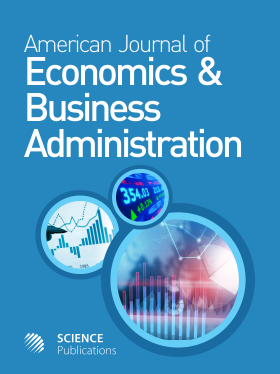Information Contents of Short Selling Restriction and Stock Lending and Borrowing Transactions
- 1 Delaware State University, United States
- 2 Mokpo National University, Korea
Abstract
This study focuses on the distinctive incident in which Stock Lending and Borrowing (SLB) transaction and short selling grew continuously even during the wavering period of the Korea Composite Stock Price Index (KOSPI) in the Korea Exchange (KRX) market. The authors analyze the information contents of SLB and short selling on KOSPI financial stocks. The financial stocks were freed from short selling ban on November 14, 2013, after being banned for more than five years following the global financial crisis in 2008. Employing the event study methodology, the authors also analyze the differences between stock market returns before and after the short selling ban. The results of this study show that the concentrated group including high levels of SLB and short selling were characterized by the higher Abnormal Return (AR) with negative effect than the comparative group after the occurrence of short sales. The results also discover that SLB and short selling transactions provide the market with significant information contents. The information effect of SLB and short selling is consistent over time, but is stronger when the transactions are more concentrated. Finally, the results reveal that the short selling has the most considerable influence on the stock market.
DOI: https://doi.org/10.3844/ajebasp.2017.27.37

- 4,680 Views
- 2,209 Downloads
- 0 Citations
Download
Keywords
- Stock Lending and Borrowing
- Short Selling
- Information Contents
- Event Study
- Korea Exchange Market
- Abnormal Return
- Cumulative Abnormal Return
